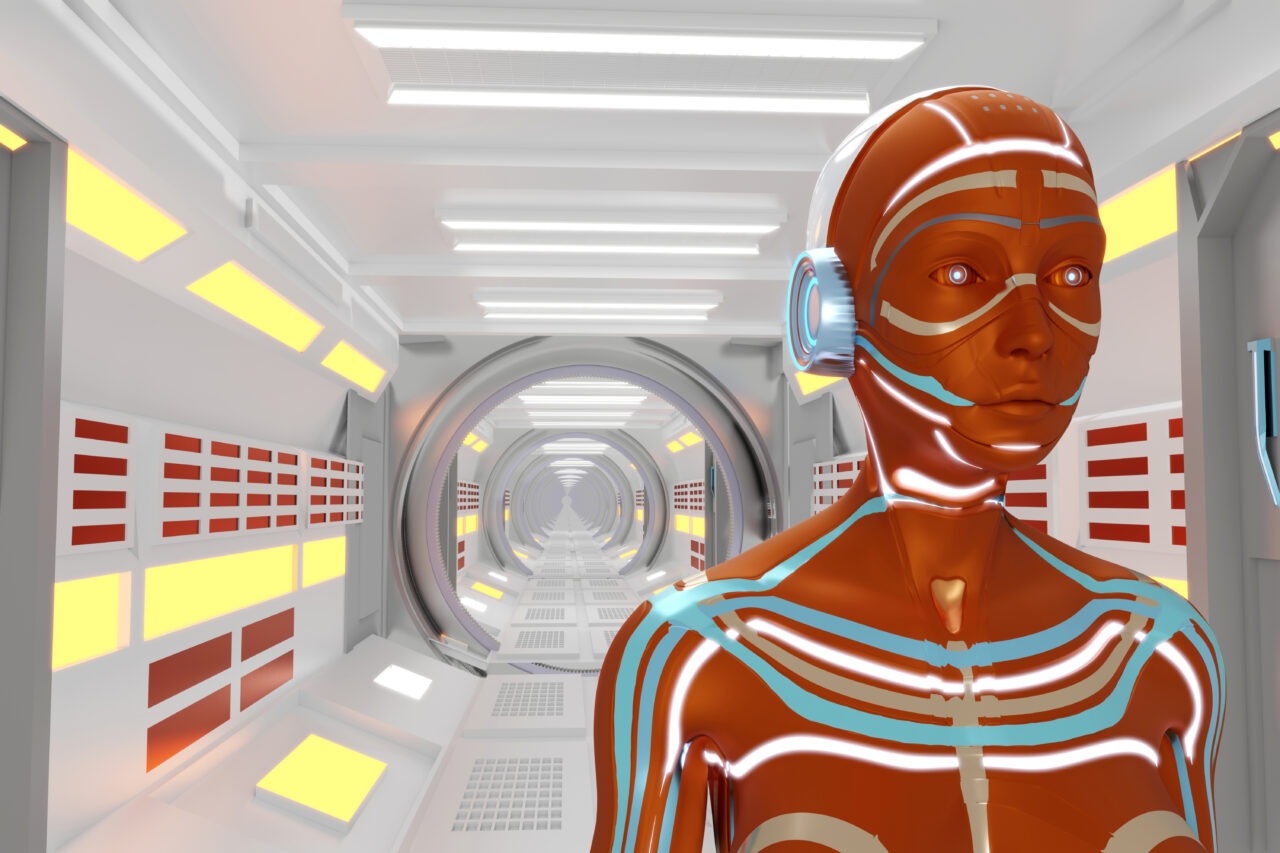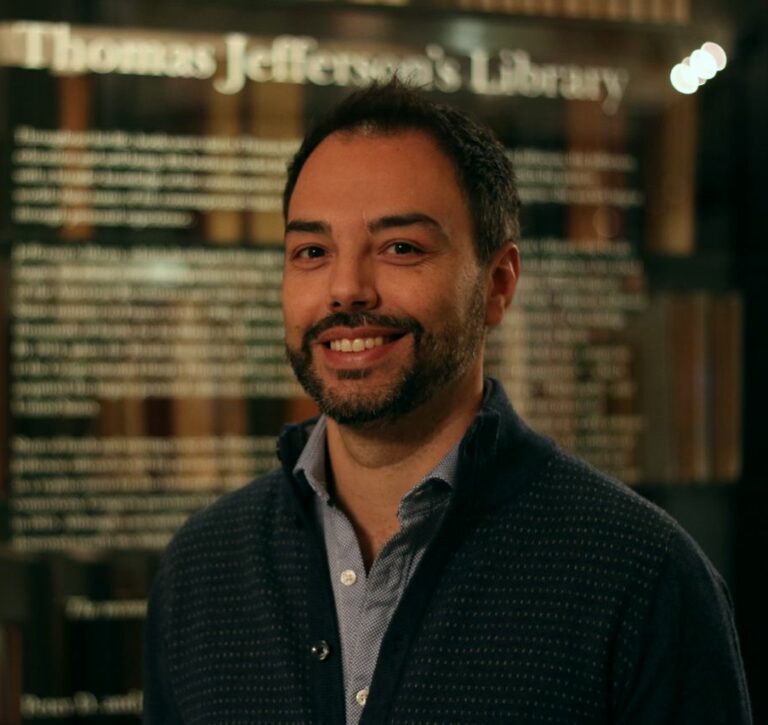
It is at the centre of discourse, enthusiasm (apart from coffee, it seems to be able to do anything, and often better than we can), fears of malign deviations or simply the worry that it will soon make us unemployed. Yet how artificial intelligence works, the research context from which it emerges, the opportunities it offers and the real risks it poses remain obscure to most of us. In search of answers to the most common doubts, we explored the topic with Davide Bacciu, professor in machine learning at the University of Pisa, and head of the Pervasive Artificial Intelligence Laboratory (PAILab).
Today, there is a lot of talk in so many areas about artificial intelligence. As an expert in the field, what is the most curious or frequent question you hear from friends and family?
Until not so long ago it was: 'but what exactly do you do?' as I mentioned neural networks or artificial intelligence, but no one understood what I actually did. I still don't think many people understand it, but now the classic question is: 'will artificial intelligence kill us all?' And the second: "will it steal my job?". Being an optimist, the answer I give to the first question is that certainly the artificial intelligence available now cannot do us much harm: the damage is done by humans, not machines.
To the second one I would say that, depending on the job you do, yes. We have to ask ourselves the question: AI is a transformative technology, like all. If you once worked as a coachman, when they invented engines you would have found yourself unemployed. We have to ask ourselves the question,, maybe change the way we conceive of society, the economy and the role of work within society... but that's another matter.
But are the fears expressed by people about losing their jobs realistic or not?
The problem affects all professions. If you are not at a certain level where your 'human' skills are irreplaceable, you are likely to be replaced by something doing the same job as you (or something perceived as such) at a lower cost. There is little to sugarcoat... The problem is not technology, the problem is that we have chosen for ourselves an economic-social system that cannot withstand the rapid change imposed by modern technology and therefore we need to rethink it, rather than worry about stopping a technology. However, once the technology has been engineered, we can regulate its use. It must also be said that no one forces us to live in this system.
What is the substantial difference between what we used to call Machine Learning and contemporary AI?
These terms are often mistakenly used almost as synonyms. In reality, 'artificial intelligence' is a term that defines an extremely broad discipline, whereas 'machine learning' is one of the paradigms within artificial intelligence. What is currently, in the common vernacular, associated with the term artificial intelligence is even a sub-area of machine learning related to generative models of language. If I talk about artificial intelligence today, everyone thinks of ChatGPT or similar.
To sum up, artificial intelligence is the whole area, while machine learning is a sub-area of artificial intelligence that seeks to pursue as its ultimate goal the creation of computational computer models capable of performing tasks that are indistinguishable from those that a human being would perform. There is no better definition than this, because to have one we would need a better definition of 'intelligence', which is very difficult to give.
And how far has machine learning come today?
Other approaches that were previously prevalent in the world of artificial intelligence sought to encode human reasoning and knowledge mechanisms with formal models and then let this 'reasoning engine' run as a human would. Machine learning, which is currently the main paradigm, tries to build models in which intelligent behaviour is learned entirely from experience, i.e. from data, in an automatic manner. Before, it was trying to do it in a very specialised way, building the data, cleaning it and preparing it to feed it to simpler models. This was because we had no data. Now, Deep Learning allows us to take data as it is and use it directly to learn from experience. We have managed to engineer the whole phase of extracting information from data that is extremely dirty, noisy, and complex. That was the real leap of species.
What was the path that led you to the role you have now?
It was quite tortuous. My PhD ended dramatically: my supervisor died while I was writing my thesis, which left me grieving and exhausted. I had to think for a while to decide whether I actually wanted to do this job, as I was not in the ideal condition. Among other things, I insisted on working on neural networks and artificial intelligence, which at the time was considered professional suicide by those doing computer science.
However, in the end it was a good investment. I was also lucky because the person I was visiting abroad, as a PhD student, gave me an opportunity: he found a funding thanks to which I first did a few months with him in Liverpool and then got a postdoc grant. The money was not enough to fund a postdoc in the UK, but it was enough for Italy, so I got a postdoc position co-funded by the University of Pisa and the University of Manchester. I started collaborating in Pisa with the few people who were there at the time, winning some projects one after the other, and I soon became quite independent. This allowed me, from scratch, to build a small research group with the first four to five PhD students, which has now grown to a group of about fifty people. Luck played a big role, as the whole world of artificial intelligence also exploded, along with an ever-increasing interest on the part of the students.
How important do you think research is? And specifically in your field?
If I didn't think it was important I would have chosen to do another job, of course. If you don't have people who have the drive, the desire and the ability to tackle the unknown, humanity does not move forward in its cultural, technological and scientific progress. Then it is true that research can be done in many ways. There are those who are able to do research that makes humanity leap decades, because they have the skills and because they arrive at the right time, and there are the people who are able to move a speck. But the grains also count. Artificial intelligence is one such example. Neural networks, as I said before, were for a very long time in a secondary track. Then, various researchers got busy, despite this, working on the grain, on making it first a snowball and then an avalanche... If scientists had stopped 60 or 70 years ago to work on neural networks, we would not be where we are today. Research is also done in different contexts: in industry, in academia... and it is important to keep them all alive, public and private. Research by companies would not be possible if there had not been research by public institutes first. And now public research institutes continue to be needed, because we need people to do research not only on AI but also on many other topics that maybe in twenty years' time will be reused by industrial research. So research is important, yes, and all research is important. I get excited when I tell these things!
Were there times when you thought about leaving research or academia?
Constantly. It happened several times, but I think it's normal. This is an extremely stressful job, and often frustrating. Let me explain: you spend most of your time working on things that don't work. Only once in a while do they work, and when they do, you have to make the satisfaction last for the long time when you start doing things again that don't work... It's absolutely normal to question yourself, but it's a job that if you don't 'choose' it on a daily basis, it eats away at your energy and your head a bit. It is also important to find people who give you the right advice at the right time. At one point, after finishing my PhD, I said to myself 'that's it, I'm going to work for a consultancy company', which at the time was like saying 'I'm going to work to earn a lot of money'. At the interview, the manager asked me: 'Dr Bacciu, are you sure you want to do this job? Because when you talk about the research you were doing your eyes sparkle...'. On the way home I thought: 'maybe I should give the research another chance'. If they had not asked me that question at the interview I might not be here now.
Roberto Pizziol
